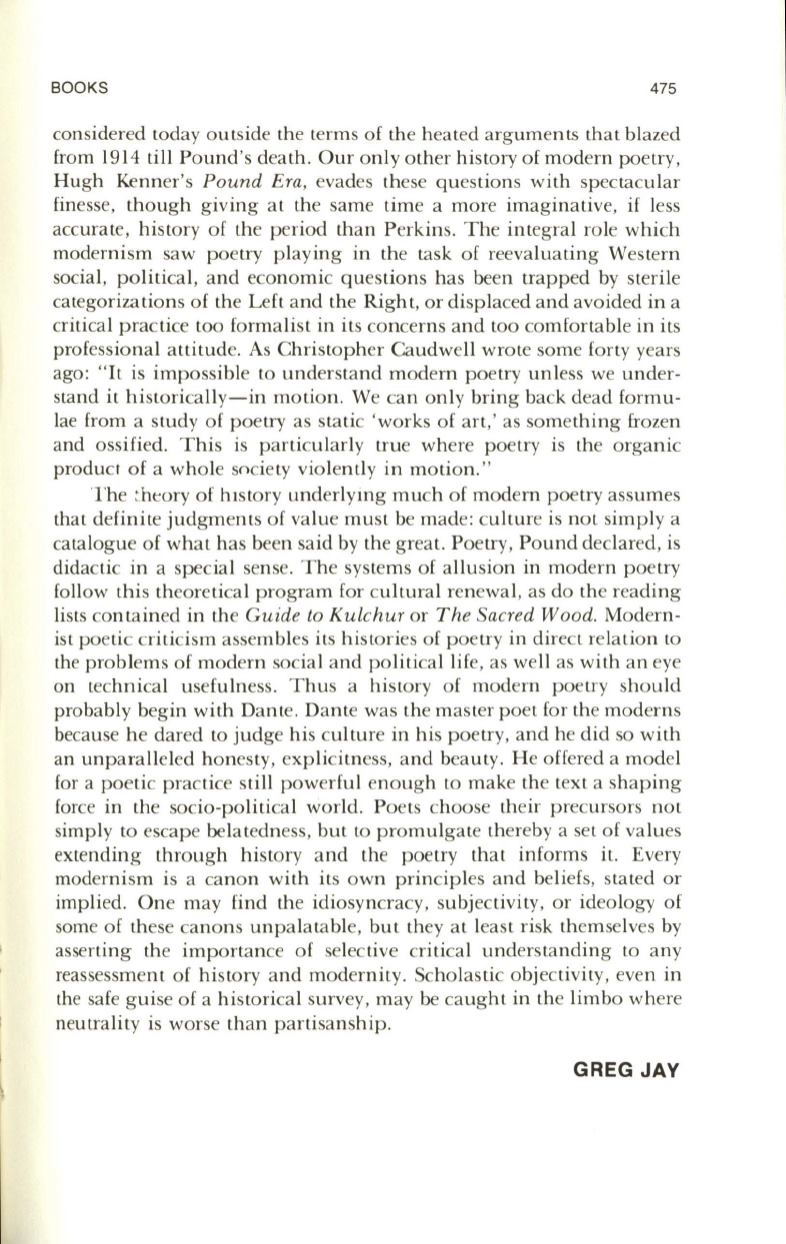
BOOKS
475
considered today outside the terms of the heated arguments that blazed
from 1914 till Pound's death. Our only other history of modern poetry,
Hugh Kenner's
Pound Era,
evades these questions with spectacular
finesse, though giving at the same time a more imaginative, if less
accurate, history of the period than Perkins. The integral role which
modernism saw poetry playing in the task of reevaluating Western
social, political, and economic questions has been trapped by sterile
categorizations of the Left and the Right, or displaced and avoided in a
critical practice too formalist in its concerns and too comfortable in its
professional attitude. As Christopher Caudwell wrote some forty years
ago: "It is impossible to understand modern poetry unless we under–
stand it historically-in motion. We can only bring back dead formu–
lae from a study of poetry as static 'works of art,' as something frozen
and ossified. This is particularly true where poetry is the organic
product of a whole society violently in motion."
The :.heory of history underlymg much of modem poetry assumes
that definite judgments of value must be made: culture is not simply a
catalogue of what has been said by the great. Poetry, Pound declared, is
didactic in a special sense. The systems of allusion in modern poetry
follow this theoretical program for cultural renewal , as do the reading
lists contained in the
Guide to Kulchur
or
The Sacred Wood.
Modern–
ist poetic criticism assembles its histories of poetry in direct relation to
the problems of modern social and political life, as well as with an eye
on technical usefulness . Thus a history of modern poetry should
probably begin with Dante. Dante was the master poet for the moderns
because he dared to judge his culture in his poetry, and he did so with
an unparalleled honesty, explicitness, and beauty. He offered a model
for a poetic practice still powerful enough
to
make the text a shaping
force in the socio-political world. Poets choose their precursors not
simply to escape belatedness, but to promulgate thereby a set of values
extending through history and the poetry that informs it. Every
modernism is a canon with its own principles and beliefs, stated or
implied. One may find the idiosyncracy, subjectivity, or ideology of
some of these canons unpalatable, but they at least risk themselves by
asserting the importance of selective critical understanding to any
reassessment of history and modernity. Scholastic objectivity, even in
the safe guise of a historical survey, may be caught in the limbo where
neutrality is worse than partisanship.
GREG JAY


